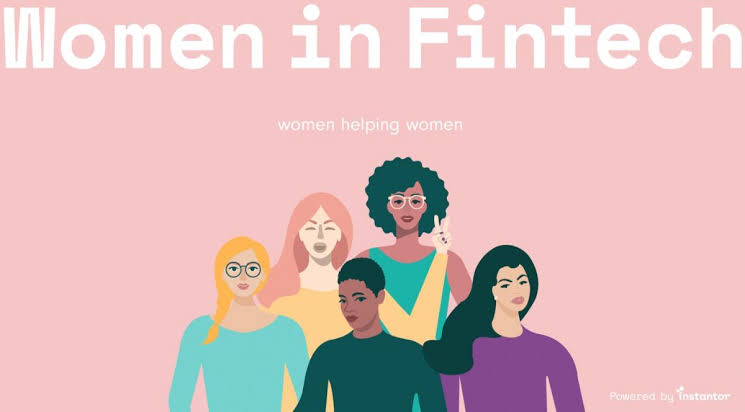The Tragic Case of Ochanya Elizabeth Ogbanje: From Abuse to Death and the Fight for Justice

The death of 13-year-old Ochanya Elizabeth Ogbanje (often reported simply as Ochanya Ogbanje) in October 2025 shocked Nigeria and reignited national conversations about child abuse, sexual violence and the justice system. What began as an innocent transfer for schooling ended in tragedy. On the surface, it is the story of one girl’s devastating end; beneath it lies structural failure, child protection gaps, evidence-gathering problems, delayed prosecutions and the continuing cry for justice.

Background: How the abuse started
Ochanya was a student at junior secondary school (reportedly at Federal Government Girls College, Gboko in Benue State) and lived away from her rural home in search of better educational opportunities. Reports indicate she moved to live with her aunt/guardian and her aunt’s husband so she could attend school in Ugbokolo, Benue State.
According to Premium Times, investigations point to the alleged abuse beginning when she was much younger and continuing for several years. Medical reports indicate she was diagnosed with vesicovaginal fistula (VVF), a devastating injury often caused by prolonged sexual assault.
Her alleged abusers were relatives in the same household: her aunt’s husband, a lecturer at the Benue State Polytechnic in Ugbokolo (Dr Andrew Ogbuja) and his son, Victor Ogbuja. The latter was reported to have fled and remained at large. It is reported that the aunt/guardian (Mrs Felicia Ochiga-Ogbuja) also had custody of the girl, and despite knowledge of the abuse, did not act to protect her.
The Turning Point: Help-Seeking, Hospitalisation and Death
At some point the abuse became medically manifest: Ochanya was hospitalised for months. She was treated at the Federal Medical Centre, Makurdi, for two months following her illness and complications. Sadly, on 17 October 2018, she died from complications linked to her condition (the VVF and its attendant health ramifications).
Her death triggered public anguish, protest and demands for accountability under the banner #JusticeForOchanya.
Legal Proceedings: What Has Happened So Far
State criminal proceedings
On 10 October 2019, the Benue State Government arraigned Dr Andrew Ogbuja in the Makurdi High Court (Benue State High Court) on a four-count charge of rape, conspiracy and causing Ochanya’s death.
On 8 October 2021, the Defence was set to open for Andrew Ogbuja after the Prosecution’s case had been closed.
On 28 April 2022, the Benue State High Court (Makurdi) presided over by Justice Augustine Ityonyiman acquitted Andrew Ogbuja of the charges, holding that the prosecution had failed to prove the case beyond a reasonable doubt.
Federal proceedings and negligence conviction
According to Punch, in a separate proceeding in the Federal High Court in Makurdi, Mrs Felicia Ochiga-Ogbuja (the aunt/guardian) was charged by the National Agency for the Prohibition of Trafficking in Persons (NAPTIP) for negligence/omission to protect Ochanya from sexual exploitation between 2014 and 2018.
Vanguard News reported on 28 April 2022, the Federal High Court found her guilty of negligence (under the Criminal Code Act, Section 344) and sentenced her to five months’ imprisonment without an option of fine.
On 18 November 2022, the Court of Appeal in Makurdi upheld her conviction, rejecting her appeal. The Court described her omission to act as a punishable offence. The son, Victor Ogbuja, remains at large. On the seventh anniversary of Ochanya’s death (October 2025), renewed calls emerged for his arrest.

Re-Opening Of The Case (Seven Years Later)
Seven years after Ochanya’s death (October 2018 to October 2025), there has been a renewed surge of public outrage and demands for the case to be reopened or further pursued.
Key points of this reopening moment:
On her death anniversary (October 2025) social-media users renewed campaigns under #JusticeForOchanya, demanding the arrest of Victor Ogbuja and a thorough investigation. Child-rights activists and civil society groups called on the Benue State Government, the Nigeria Police Force, the Ministry of Justice and relevant agencies to reopen the case and ensure all suspects are prosecuted.
The renewed calls emphasise that while Mrs Ogbuja was convicted (and her conviction upheld on appeal) and the lecturer was acquitted, one main accused remains free; many feel full justice has not been served.
Though not strictly “re-opening” in judicial terms (the lecturer’s acquittal stands, Mrs Ogbuja’s conviction stands), the renewed public pressure may trigger further investigations, especially into the whereabouts and prosecution of Victor Ogbuja.
Thus, in effect, the case has entered a new phase of activism and policing rather than a formal new trial of the main accused, but the public framing is that the “case is being reopened.”
Why This Case Matters
Child protection system under stress: The case highlights how a vulnerable minor placed in a guardian’s home became a victim of repeated sexual violence.
Forensic and evidence challenges: The acquittal of the main accused in state court raises concerns about the quality of evidence, medical investigations and prosecutorial capacity.
Legal precedent for omission liability: The conviction and appeal-upholding of Mrs. Ogbuja sets a precedent for duty of care and criminal omission in Nigeria.
Public trust & accountability: The persistent absence of the son suspects and the perception of selective justice erodes public trust.
Victim rights & awareness: The case keeps the spotlight on sexual abuse, VVF as a consequence, and the necessity of timely medical and legal intervention.
Key persons involved:
Ochanya Elizabeth Ogbanje (victim): Junior secondary school student, died aged 13 on 17 October 2018.
Dr Andrew Ogbuja: Lecturer at Benue State Polytechnic, Ugbokolo; maternal relation of Ochanya; accused of rape and causing death, later acquitted in state court.
Victor Ogbuja: Andrew’s son; alleged to have serially raped Ochanya and remains at large.
Mrs Felicia Ochiga-Ogbuja: aunt/guardian of Ochanya, wife of Andrew; convicted of negligence (failing duty of care) in federal court, and the appeal was upheld.
Prosecution/Investigative agencies: Benue State Government (state prosecution), Nigeria Police Force, NAPTIP (federal).
Civil society/rights groups: Child-rights activists, NGOs (e.g., the Centre for Children’s Health Education, Orientation and Protection, CEE-HOPE), campaigning for justice. -Daily Trust
Challenges and Outstanding Questions
Why was the main accused (Andrew) acquitted despite testimony, video evidence and medical records? Many view this as a failure of the prosecution rather than exoneration based on innocence. Why has Victor Ogbuja not been arrested or brought to justice? His continued freedom is cited as a major gap. Were forensic/medical evidence and witness protection adequate?
According toChannels Television, the case features mention of a video of the victim, medical records of VVF, but also objections in court to admissibility. What reforms have followed in Benue State (and Nigeria) to ensure future similar cases don’t stall or go unprosecuted? Will the renewed public pressure in 2025 lead to a formal reopening of the state criminal case or a fresh enquiry?
What The Public is Demanding Now:
Immediate arrest and prosecution of Victor Ogbuja.
Transparent admission of how evidence was handled and why the major acquittal occurred.
Strengthened victim-support services: forensic, medical, and counselling for minors.
Accountability for all parties, including guardians who failthe duty of care (as in Mrs Ogbuja’s case).
Institutional reform: better child-protection policies, enforcement of the Sexual Offences Act/VAPP (Violence Against Persons Prohibition Act), and coordination between state and federal agencies.
In conclusion, the case of Ochanya Elizabeth Ogbanje is tragic not just because of her young life cut short, but because it reveals how vulnerable children can fall through the cracks in Nigeria’s legal, medical and societal systems.
Seven years after her death, the push for justice continues. Activists argue that the fight is far from over until all key suspects are held accountable and systemic change is achieved.
You may also like...
How to Navigate a Career Switch Without Starting Over

Changing careers doesn’t have to mean losing progress. With the right strategy, it’s possible to move into a new field c...
Top Skills That Will Future Proof Your Career

In a fast-changing world of work, staying relevant takes more than talent, it takes the right skills to future proof one...
The Tragic Case of Ochanya Elizabeth Ogbanje: From Abuse to Death and the Fight for Justice

The story of 13-year-old Ochanya Elizabeth Ogbanje: Her years of alleged sexual abuse, death in October 2018, how the ca...
Redefined Career Paths: The State of Work Across Africa in Late 2025.

From entrepreneurial partnerships to digital startups, millions of young people are redefining what it means to have a c...
Digital Banking Platforms and the Financial Future of African Freelancers and Remote Workers

There is a revolution in the African Digital Economy. With a new generation of remote workers, digital banking platforms...
Breaking Barriers: How Women-Centered FinTech is Empowering Africa’s Entrepreneurs

Women-centered Fintechs in Nigeria and across Africa have taken the initiative in transforming the idea of financial inc...
A Wired Decade: Africa Rebuilt Itself Through Technology 2015–2025

Over the past decade, Africa has quietly assembled one of the most dynamic digital ecosystems in the world.
AI Tokens: The New Spoiler in the Crypto Market Drama

AI tokens were once the hottest trend in crypto until they led a sudden market pullback. This article explores how hype,...
.png&w=1920&q=75)

